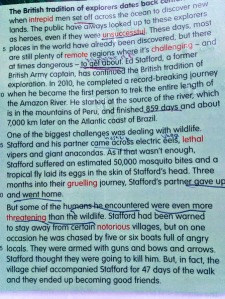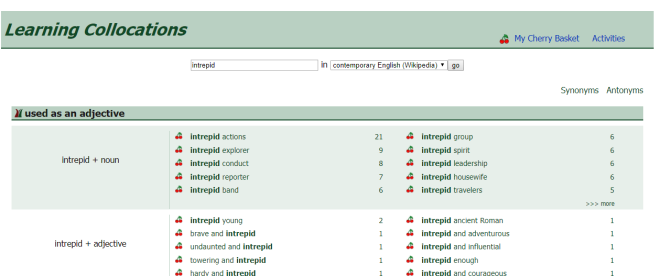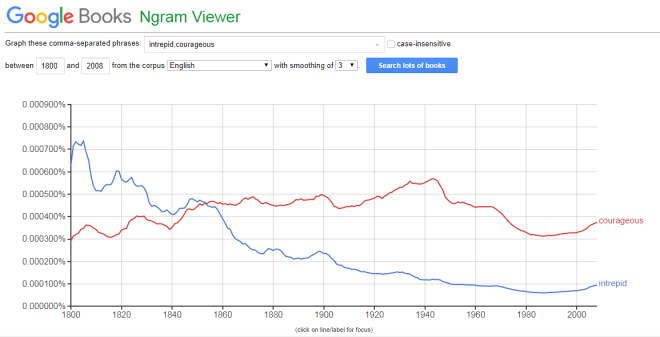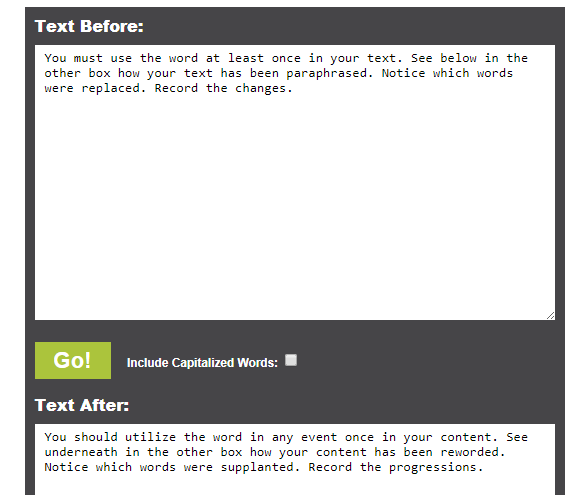 In this post, I’d like to share a method of helping your students become more independent learners, especially in terms of exploring vocabulary.
In this post, I’d like to share a method of helping your students become more independent learners, especially in terms of exploring vocabulary.
The visual on the left shows a classic example of a piece of text from a coursebook. Normally, students would be asked to try to infer the meaning of the highlighted words from context and then match them with definitions provided. Additionally, students may be invited to look up the L1 equivalents and work on some follow-up activities which would help them retain the target words.
This, I believe, is a perfectly acceptable approach since, as Ellis (1997) argues, acquisition can be speeded by making the underlying patterns of language more salient as a result of explicit instruction or consciousness-raising. However, I also believe that more can be done to help students build vocabulary than just asking them to do a couple of coursebook exercises.
For the sake of demonstration, I’ll pick the word intrepid, but students can be assigned any (number of) words. As you will see, though, one is more than enough.
At home (or in a language lab), students will complete the following ten tasks.
- In a monolingual online dictionary, find the definitions of the target word, i.e. intrepid. Pay attention to the example sentences.
Note: I usually use The Free Dictionary to do look up words myself but there are loads of other websites. I deliberately chose a monolingual dictionary as the first step since, according to Ellis, some people have difficulty in acquiring L2 lexis because they fail properly to infer the meanings of new lexis. Thus, he maintains, learners should be trained in strategies for inferencing from context. Moreover, active derivation of meaning makes the vocabulary more memorable. - Google the target word and see what images come up. How useful are the images in terms of your ability to guess the meaning of the word?
- In an online thesaurus, find its closest synonym and an antonym. I usually use Thesaurus.com. I believe that working with synonyms may also count as a useful strategy for inferencing.
- By now, you should already be familiar with the meaning. To ultimately confirm your guess, go to a bilingual online dictionary to look up the L1 equivalent. What part of speech is it? Note: To do this, I’d normally use slovnik.seznam.cz.
- Click the speaker icon (if available) to listen to the pronunciation of the word. Repeat several times.
- Go to flax.nzdl.org to find out what its most frequent collocates are. The numbers will help you determine this. The higher the number, the more frequent. Jot a few of them down along with the expression itself, e.g. intrepid explorer.

- Go to Fraze.it and see how the word is used in a sentence. Choose one example and write it down. Note: This is similar to Step 1 above and thus it could come right after it. However, unlike in dictionaries, where the definitions are usually simple enough for the L2 learner to figure out the meaning of the word, the data in corpora are examples of authentic language, which inevitably makes the process of inferring more challenging. Thus, I believe, this step should be postponed till later.
- To explore the expression a bit more, go to Ngram Viewer and compare the word to its closest synonym you found earlier. Which one is more frequent these days? Note: This simple visual, I believe, draws attention to the word once again and by juxtaposing it with a synonym, the learner is likely to make both words more memorable for him/her.

- Go to the Corpus of Contemporary American English (no need to register if you only need to do just a few searches) and type in the word into the search box. Add an asterisk, i.e. intrepid* and see the most common suffixes (2-3 will suffice). Write the new words down. What parts of speech are they now? What do they mean? Go back to The Free Dictionary or slovnik.seznam.cz if necessary. Note: By learning a couple of related words, the learner will expand his/her vocabulary with just a little extra effort.

10. Finally, let’s go on to the productive stage now. Go to paraphrasing-tool.com and type in a paragraph (about 5 sentences) into the first box. Remember to use the target word. See below in the other box how your text has been paraphrased. Notice which words have been replaced. Note: I think this is a handy tool but I rarely use it since I can access synonyms directly through my Grammarly for Chrome. However, while the paraphrasing tool seems to take into consideration the context of the words it later replaces, Grammarly only offers a list of synonyms for each word from which *I * then have to choose the most fitting option. I presume this might be a bit challenging for a less advanced learner. 
I dare to conclude that the multiple encounters with the target word, along with the teacher’s requirement to use it, will make it possible for the learner to remember it better. However, this is not the main aim of this expedition. As the learner will encounter the target expression in many different contexts, some incidental learning of more language items is likely to occur. Most importantly, apart from traditional online dictionaries, the learners will familiarize themselves with several useful web-based tools.
References:
Ellis, N. C. (1997). Vocabulary acquisition: Word structure, collocation, grammar, and
meaning. In M. McCarthy & N. Schmidt (Eds.) (1997), Vocabulary: description,
acquisition and pedagogy (pp. 122-139). Cambridge: Cambridge University Press.
I love this idea of diving into one word and really exploring it. Thanks for introducing me to a couple of new tools too. Maybe they could also go to http://www.playphrase.me and listen to it used in a lot of clips (though it doesn’t seem to be letting me go onto the site now) or forvo.com and hear different pronunciations of the word.
Sandy
LikeLiked by 1 person
Thanks, Sandy. I’m sure I (and the readers of this blog) will find the links useful.
LikeLike
Very nice! One suggestion I have would be for students to also use the new word in a conversation. That way, they can confirm whether they really understand the social context of the new word.
LikeLiked by 1 person
Absolutely! Thanks for reading, Matthew.
LikeLike
Hi Hana! Great post with lots of useful tools and tips. Thanks!
LikeLiked by 1 person
Thanks for dropping a line, Hada. Always appreciated.
LikeLike
Reblogged this on nataliaeydelman and commented:
A great collection of tools to help the students build up their vocabulary, which hopefully can help them become more autonomous learners
LikeLiked by 1 person
Hi Hana,
Your article is very nice, you have written a very nice article, and I have created a paraphrasing tool that is very nice, inside it we have set a very good example, I hope it will be very useful to you.
LikeLike